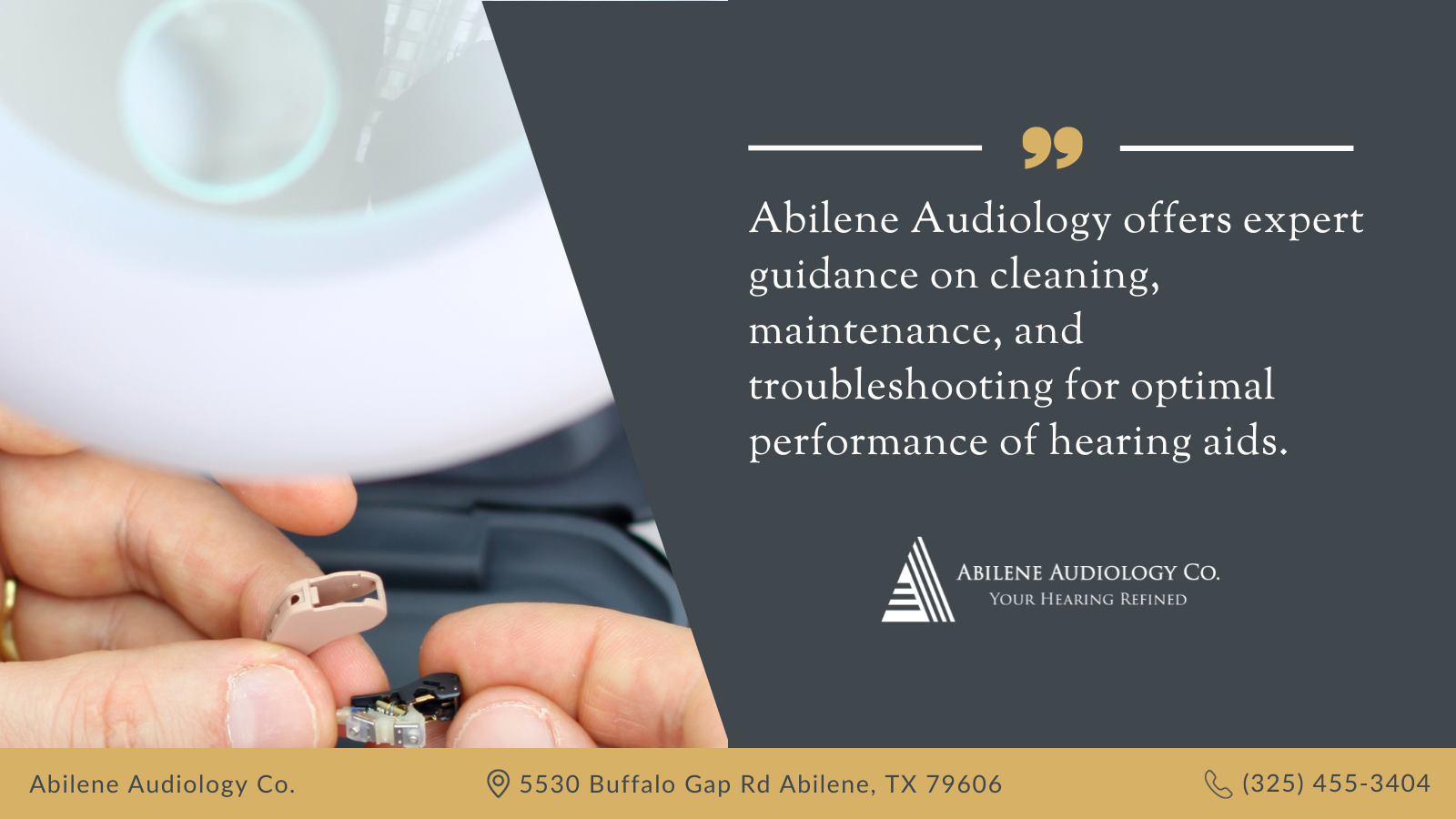Hearing aids are delicate devices that can easily malfunction if not properly taken care of. Given their role in helping people with hearing loss communicate and navigate the world around them, it is important to be familiar with how to handle them with care. If necessary, the hearing aids should be brought to a professional who is trained in how to service hearing aids.
How To Service Hearing Aids: Basic Troubleshooting
Just like any electronic device, hearing aids can encounter technical problems that can affect performance.
Below are some basic troubleshooting steps you can take before taking your hearing aids to someone who is trained in how to service hearing aids.
- Check the battery: If your issue involves power, it could be due to a low power or dead battery. Replacing the battery with a fresh one usually resolves the issue.
- Check the volume controls: If the batteries are newly replaced, the issue may be with the volume controls. In some instances, the volume may be accidentally turned down.
- Dirty or blocked hearing aids: Feedback or whistling sounds may occur when earwax builds up on the device or the hearing aid is not properly inserted into the ear. Make sure the ear canal and the hearing aid are clean and free from any blockage before reinserting it.
If the above hearing aid basic troubleshooting does not work, it is time to seek professional help. An audiologist or hearing aid specialist can check and repair any technical problems with your hearing aids.
We discourage attempting to fix the device yourself, as this could only cause further damage and potentially void the warranty of the device.
When to get more help for a repair
While basic hearing aid troubleshooting can often resolve common issues, there may be instances when more extensive repairs are necessary. When this happens, it is essential to seek professional help from an audiologist or any other qualified hearing healthcare provider.
Below are some instances when you should seek professional help for hearing aid repair:
- Physical damage. Exposure to moisture or accidental drops can cause significant damage to the internal components of the hearing aid. If you notice any cracks or chips on the hearing aid casing, this can also be a sign of physical damage and should be addressed by a professional promptly.
- The hearing aid is not responding to basic troubleshooting: If the device continues to have no power, feedback, or distortion after cleaning or adjusting the volume controls, there may be a bigger or more complicated issue at hand that requires a hearing healthcare provider’s expertise.
- Significant decrease in hearing aid performance: If you notice big changes in hearing performance, such as needing to adjust the volume more frequently, difficulty hearing in noisy environments, or experiencing sound distortion, this could be a sign that the hearing aid needs to be repaired, reprogrammed, or replaced. An audiologist or hearing aid specialist can best assess the device and give recommendations for the next steps..
Preventing the Need for Hearing Aid Repairs
Taking proper care of your hearing aids can help in preventing the need for repairs and replacements.
Below are some tips to keep your hearing aids in good condition:
- Clean your hearing aid regularly: You can clean your hearing aid with a soft, dry cloth or a hearing aid cleaning kit from your audiologist. Keep dirt, wax, and other debris from polluting your device.
- Avoid using water or cleaning solutions that can damage the hearing aid.
- Keep hearing aids dry: Moisture is the number one enemy of hearing aids because it can damage the internal components and other delicate parts.
- Store hearing aids in a dry, cool place.
- Consider using a drying kit or dehumidifier to remove any moisture from your hearing aids.
- Handle your hearing aids with caution. Hearing aids are delicate devices which means that you should avoid dropping, hitting, or squishing your hearing aids. Most hearing aids come with a carrying or protective case, place your hearing device inside when not in use.
- Be careful when inserting or removing hearing aids from your ears.
- Turn off your device before removing it from your ear to avoid distortion and feedback.
By following these tips, you can help extend the life of your hearing aids and prevent the need for repairs.
Hearing Aid Repair in Abilene, TX
By properly maintaining and caring for your hearing aids, you can enjoy clear and uninterrupted hearing for many years to come. Addressing any hearing aid issues promptly can help ensure that the hearing aid is functioning appropriately, giving you the best possible hearing experience.
Abilene Audiology Co. provides professional hearing aid repair in Abilene, TX as part of our comprehensive hearing care and audiology services.
Contact us today to book an appointment!

